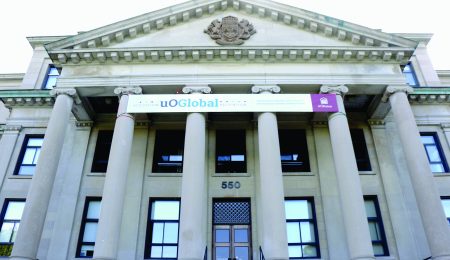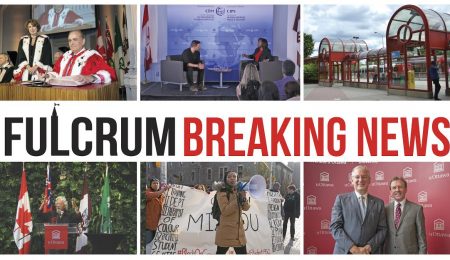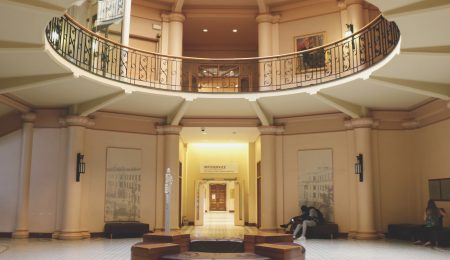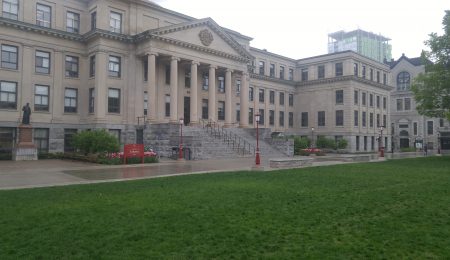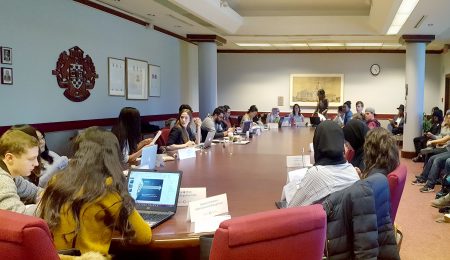A group of students on campus has begun working on the creation of a new student union. Going by the name University of Ottawa Students’ Union, the group hopes to be on a student referendum ballot in November.
SFUO
This came in response to fraud allegations, and allegations of financial misconduct faced by at least three individuals on the SFUO executive, and for many students, felt long overdue. For others however, concerns of administrative interference in student governance raised red flags, and some students feel as though their voices are being stifled. We’re here to tell you that this is not the case.
The administration has a lot of questions to answer in the coming months and negotiations will be intense, but this needs to be readdressed with a proper overhaul of the SFUO. With only two executives currently serving, students need to come together to make sure that the SFUO does what it can to regain the trust of students at the U of O.
Covering the walls of the tunnel were elaborate schematics of what the Tomato would soon find out is the Tornadorator 3000. In the corner, a small group of engineering student were hunched over scribbling designs; UberEats Mcdonald bags littered the floor.
The Board of Governors met on Sept. 24 to discuss the past year’s budget, this year’s budget, the future of Brooks residence, Ontario’s free speech policy, and cannabis legislation on campus. At the end, the board went in camera to discuss the SFUO.
The SFUO announced that three executives will vacate office, and their intention to continue operations in light of the university’s contract termination notice.
In a statement released on Sept. 25, the University of Ottawa announced that they have given the Student Federation of the University of Ottawa (SFUO) official notice of termination of the contract held between the SFUO and the university administration.
In a document recently obtained by the Fulcrum, the University of Ottawa administration has said that they expect the resignation of all SFUO members involved in the recent fraud allegations until the completion of a forensic audit.
The SFUO held their monthly Board of Administration meeting to discuss the ratification of the constitutional committee’s choice of forensic auditor, a letter received from former SFUO president, Hadi Wess, and the announcement of an executive’s resignation.
Scandal and criticism are not new to the SFUO. For those of you who have just arrived at the U of O, let’s take a trip down memory lane.
It’s never too late to get involved—check out these artsy clubs this semester.
Over the summer, the SFUO, Board of Governors, and Senate established new facilities, programs and services for students. It was a busy one.
We must resist the urge to scrap the whole organization. The SFUO can and should play a positive role in the lives of students. We can’t allow ourselves to become lazy and decide that the SFUO isn’t worth saving.
“Run! Hide! Burn the evidence!”
Just like a country, a student union that neglects its history becomes short-sighted and ineffective.
On Sunday, there was an opportunity for members of the BOA, on behalf of the students they represent, to stand up and do the right thing. What happened? BOA members failed to protect students and fight for us at the table, leaving myself and many others feeling frustrated and angered.
The resolution, pertaining to the forensic audit, would ensure that results from the audit cannot be used in a prosecution unless approved by the BOA. Further, the board would call upon Wess to pay the federation $994 in external legal fees by Oct. 1.
Your money was allegedly stolen from you by someone you should have trusted. Be angry about it, talk with your friends about it and make it an election issue. But what you should never do is make this a partisan issue, and that’s what one of my colleagues did. Contrary to his attempt, Alexei Kazakov’s letter does nothing to galvanize students and if his advice is heeded, the student body will be worse off for it.
First off, I would like to apologize to you, the student body. Most of us in student politics go into it because we want to improve your experience at the university, not make you stress about scandals and the acts of certain individuals. We do not all go out and buy expensive sunglasses or shoes, nor do we go off on expensive trips. Most of the student bodies are volunteer run, i.e. no money goes to your elected officials—it goes straight back to you.
“Allegations against Dorimain range from fraudulent use of SFUO funds under the guise of office cleaning and the catering of the SFUO Leader Action event on April 28, while Rachiq is accused in the report of possibly forging the certification of a “faulty” club called Testing Restaurants UOttawa and claiming funds for personal use.”
I write to you in the wake of the latest SFUO scandal to tickle the part of our brains concerned with righteous indignation, i.e. president Rizki Rachiq engaging in large-scale embezzlement of SFUO funds to buy himself luxury goods, including but not limited to visits to a haute-couture hair stylist in Montreal, Louis Vuitton shoes, and a $950 pair of glasses.
Student and university politics don’t stop just because the school year does.
It’s a good thing that the SFUO has started live-streaming its meetings this year, but it needs a better system to make sure important meetings, like the one on March 25, don’t fall through the cracks.
The SFUO held their monthly Board of Administration meeting, where they voted on motions that were presented at the General Assembly (GA) on March 13, and one motion that was not presented at the GA due to time constraints.
There is no “right” versus “wrong”. There are policies that occur that must be discussed and debated. These policies are important to people here in Canada, but also to the lived experiences of Palestinians and Israelis. However, we must have the opportunities within an academic institution to fully discuss and explore these implications of policy.


